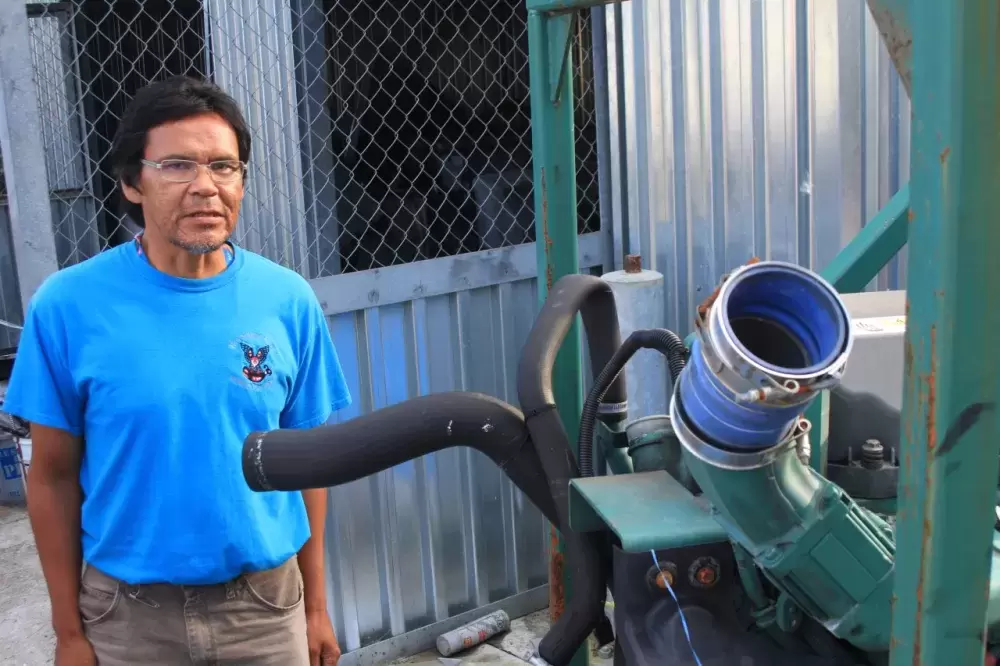Every month, the village of Hot Springs Cove barges trucks full of diesel through Clayoquot Sound. Residents within the remote community depend upon the fuel to power and heat their homes. It racks up a price tag of over half a million dollars each year and poses an ongoing chance of a spill within the region.
“That’s something we don’t want to risk,” said Hesquiaht’s elected chief Joshua Charleson. “Risk destroying the beautiful environment we have in Clayoquot Sound.”
The Hesquiaht First Nation community has been trying to transition to hydropower through the Ah’ta’apq Creek Hydropower Project for over a decade. It is a $14-million project designed to reduce Hot Springs Cove’s reliance on diesel by 80 per cent, leaning on power generated by the nearby creek instead.
The project had been continuously de-railed because of lack of funding and was a growing source of frustration for the late elected chief Richard Lucas, who spent years trying to pool funding sources to get the project done.
“There hasn’t been any ground broken yet on the actual building of the hydropower dam and the powerhouse,” said Charleson. “There’s been a lot of work put into it and I just jumped into it.”
But he is hopeful that there is end in sight.
A recent statement issued by the Ministry of Energy, Mines and Petroleum announced that $4.1 million in funding would be contributed towards the project by the Renewable Energy for Remote Communities program.
"Remote Indigenous communities are moving forward with greener alternatives, such as replacing dirty diesel power with clean, renewable sources for electricity,” said Scott Fraser, minister of Indigenous Relations and Reconciliation, in the report. “Hesquiaht First Nation's participation in this program is a strong example, bringing sustainable energy practices to Clayoquot Sound and contributing to a cleaner, healthier province for everyone."
Construction of the next phase of the project is anticipated to begin in mid-July and continue for 18 months – pending “there are no hiccups or delays because of weather,” said Charleson.
Due to COVID-19 and the community’s ongoing efforts to keep residents safe, the contractor who secures the project is required to set up their own camp outside of the village.
“We’ve had to forgo having [contractors] stay in the community, unfortunately,” said Charleson. “Because there’s not a whole lot of economic opportunity for our community up in Hesquiaht, it is a big deal.”
After consulting with the community, it was widely agreed that the project should move forward despite the loss in accommodation revenue.
Looking to the future, Charleson hopes that Hot Springs Cove can transition from diesel entirely by installing a solar system.
“We don’t generate as much [hydro]power in the summer, so we’re hoping we can compensate that with solar power,” he said. “That’s the vision and we’re hoping to get there.”







